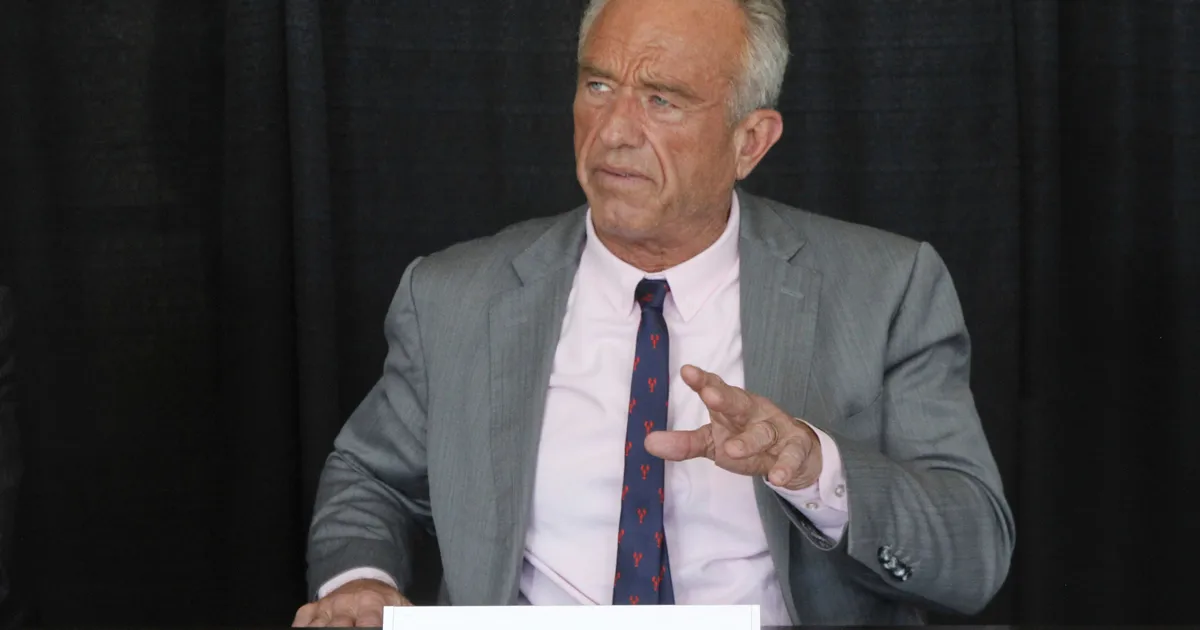
LOADINGERROR LOADING
ATLANTA (AP) — Health Secretary Robert F. Kennedy Jr.’s new vaccine advisers added confusion Friday to this fall’s COVID-19 vaccinations — declining to recommend them for anyone and leaving the choice up to those who want a shot.
Until now, the vaccinations had been routinely provided to nearly all Americans who wanted them. The Food and Drug Administration recently put new restrictions on this year’s shots from Pfizer, Moderna and Novavax, reserving them for people over 65 or younger ones who are deemed at higher risk from the virus.
Advertisement
In a series of votes, advisers to the Centers for Disease Control and Prevention didn’t specifically recommend vaccination but said people could make individual decisions.
The panel also urged the CDC to adopt stronger language around the supposed risks of vaccination, an idea that received pushback from outside medical groups who said the shots had a proven safety record.
And the divided panel narrowly avoided urging states to require a prescription for the shot.
Dr. Sean O’Leary of the American Academy of Pediatrics called the decision not to recommend vaccination “extraordinarily vague” and said it would have “real-time impacts on American children.”
Advertisement
He said the discussion involved clear efforts to “sow distrust” about vaccines.
“It was a very, very strange meeting,” O’Leary said.
The COVID-19 vaccines are not perfect, but CDC data shows they provide the strongest protection against severe infection and death, even if people still become infected. Likewise, people can get COVID-19 repeatedly as the virus continues to evolve.
Like flu vaccines, COVID-19 shots now are being updated yearly, but only about 44% of seniors and 13% of children were up-to-date on the coronavirus vaccinations last year, the CDC said.
“If you make a recommendation that people are simply not going to follow, I don’t think that’s wise,” said panelist Dr. Cody Meissner of Dartmouth College.
Advertisement
Another question concerns a very rare side effect mostly in young men — a kind of heart inflammation called myocarditis — that was discovered in the early days of vaccination in 2021. A scientist studying whether people with certain genes are uniquely susceptible to that risk told the panel the Trump administration had canceled his grant before the research could be finished.
The panel took up COVID-19 vaccinations as the virus remains a public health threat. CDC data released in June shows the virus resulted in 32,000 to 51,000 U.S. deaths and more than 250,000 hospitalizations last fall and winter. Most at risk for hospitalization are seniors and young children — especially those who were unvaccinated.
Worried about access, leading medical groups including the American Academy of Pediatrics already have issued recommendations that the vaccines be available to anyone age 6 months and older who wants one — including pregnant women — just like in prior years.
Advertisement
Several states have announced policies to try to assure that access regardless of Friday’s ACIP decision. And a group representing most health insurers, America’s Health Insurance Plans, said earlier this week that its members will continuing covering the shots through 2026.
The panel opened the second day of its meeting with continued confusion over a question it left hanging Thursday: whether to end a longstanding CDC recommendation that all newborns be vaccinated at birth against a liver virus, hepatitis B.
The panel had been considering whether to recommend delaying that initial vaccination — something doctors and parents already can choose to do. But amid criticism from independent pediatric and infectious disease specialists who say the vaccine is safe and has helped infant infections drop sharply, the advisers decided Friday to postpone that decision.
Advertisement
On Thursday, the panel recommended a new restriction on another childhood vaccine.
They recommended that for children under 4, their first dose of protection against MMR — measles, mumps and rubella — and chickenpox should be in separate shots, not a combination version known as MMRV. Since 2009, the CDC has said it prefers separate shots for initial doses of those vaccines and 85% of toddlers already do.
On Friday, the committee also recommended that the government’s Vaccines for Children program — which covers vaccine costs for about half of U.S. kids — align its guidance with that narrower MMRV usage.
Stand With UsAgainstCensorship
Your SupportFuelsOur Mission
Your SupportFuelsOur Mission
The Trump administration is cracking down on free speech and targeting the media. Become a member now to protect the truth before it’s erased.
We Won’t Back Down
We remain committed to providing you with the unflinching, fact-based journalism everyone deserves.
Thank you again for your support along the way. We’re truly grateful for readers like you! Your initial support helped get us here and bolstered our newsroom, which kept us strong during uncertain times. Now as we continue, we need your help more than ever. We hope you will join us once again.
We remain committed to providing you with the unflinching, fact-based journalism everyone deserves.
Thank you again for your support along the way. We’re truly grateful for readers like you! Your initial support helped get us here and bolstered our newsroom, which kept us strong during uncertain times. Now as we continue, we need your help more than ever. We hope you will join us once again.
Support HuffPost
Already contributed? Log in to hide these messages.
___



